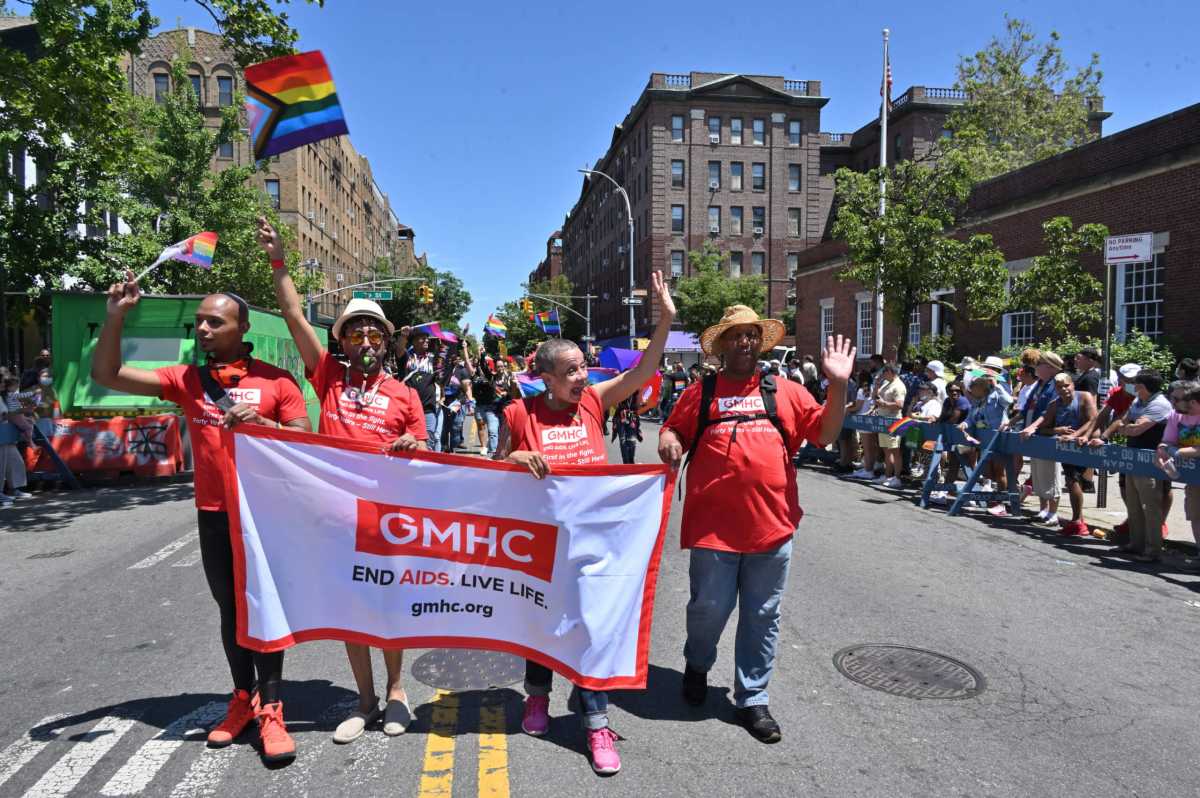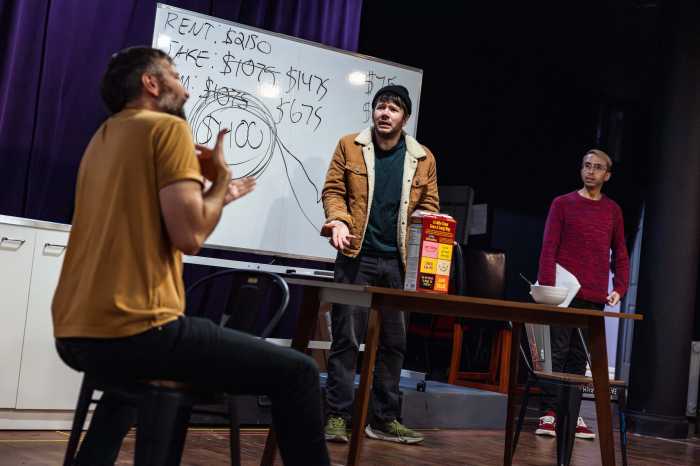A few weeks ago, thousands of New Yorkers converged on Central Park for the 39th annual AIDS Walk New York, benefiting GMHC and several AIDS services, social justice, and public health organizations. Founded in 1982 as Gay Men’s Health Crisis, the world’s first HIV and AIDS service organization, GMHC provides lifesaving, culturally competent, supportive services to over 5,500 New Yorkers every year living with or affected by HIV and AIDS. I am proud to represent GMHC in my City Council district and as co-chair of the Council’s LGBTQ caucus.
This year, the community’s support is even more critical: Mayor Eric Adams has proposed budget cuts that will eliminate three GMHC programs that help people living with HIV keep the virus untransmittable, stay healthy, and secure employment. All are essential to NYC’s plan to end the HIV epidemic.
The budget cuts, totaling almost $1.1 million, would eliminate GMHC’s Undetectables, HIV Prevention and Literacy: Older Adults (HLA), and Realizing Independence through Support and Employment (RISE) programs, which empower people diagnosed with HIV to live full and productive lives. The cuts affect 13 GMHC staff positions — and hundreds of the agency’s clients. And this is just a portion of the $5.7 million in total budget cuts the mayor has proposed making to HIV and AIDS services organizations across the city.
These programs that are vital to ending the HIV epidemic in our city will end on July 1 unless funding is restored in Mayor Adams’ final adopted budget. He proposed the cuts in January, after the Department of Health and Mental Hygiene (DOHMH) reported a small increase in HIV infections among men who have sex with men. Subsequently, the city’s Office of Management and Budget has projected a $3.3 billion surplus for FY25. There is simply no reason to cut these programs.
Undetectables
In the Undetectables program, GMHC staff provide expert case management to ensure that New Yorkers diagnosed with HIV receive the medical care and support they need to achieve an undetectable viral load, which means that the virus cannot be transmitted via sexual contact. The Undetectables served over 90 GMHC clients in 2023, and the organization plans to increase that to 150 clients if funding continues.
About 70% of GMHC clients live under the federal poverty line, and many Undetectables clients face added challenges like unstable housing or substance use. GMHC staff connect them with the supportive services that address these needs. Clients receive incentives at key milestones to support adherence to their medication and treatment. One client says she’ll use her next incentive to buy pots and pans for the new apartment a staff member helped her to secure.
HIV Prevention and Literacy: Older Adults
People aged 50 or older make up 45% of GMHC’s clients, and they are the fastest growing demographic of people living with HIV. The HLA program’s peer educators inform older New Yorkers, regardless of their HIV status, about HIV prevention, safer-sex practices, and medical care — and help them to fight HIV stigma and ageism. Last year, HLA staff served 743 participants through regular workshops and webinars on topics like HIV treatment updates and substance use. The HLA program also produces trainings, partner engagement meetings, and an annual HIV & Aging Conference for older adults, medical, and services providers.
RISE
GMHC’s RISE workforce development program has helped nearly 650 people living with HIV and AIDS find meaningful employment over the last decade. RISE staff provide computer literacy courses at a state-of-the-art computer lab, professional certifications, and personalized resume and employment counseling.
One RISE client, Valentina Batalla Vidal, did not feel she could openly live as a transgender woman, growing up as a Mexican immigrant in Bushwick, Brooklyn. She struggled with depression and anxiety and was working at a fast-food restaurant when diagnosed with HIV at age 30.
After earning several Microsoft certifications at GMHC and further training at LaGuardia Community College, Valentina began working as a peer mental health specialist. At that point, she felt empowered to live authentically and begin her gender transition. Valentina has since rejoined RISE as a vocational case manager, helping New Yorkers like herself achieve financial self-sufficiency.
Restoring the funds for these programs in the final adopted budget is necessary to ensure people living with HIV and AIDS live with dignity and the city fulfills its commitment to ending the epidemic.
Councilmember Erik Bottcher of Manhattan’s District 3 is the co-chair of the City Council’s LGBTQIA+ Caucus. See GMHC’s campaign to restore proposed budget cuts at gmhc.org/actnow.





































